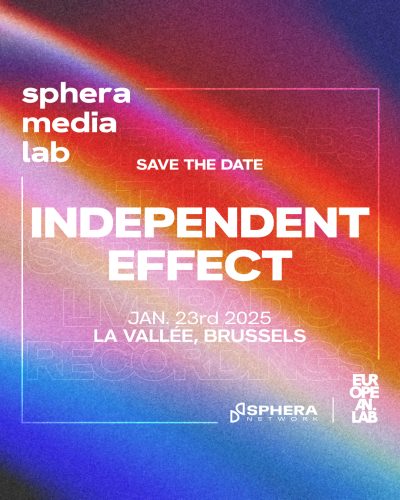
On January 23rd, 2025, European Lab, the discourse programme platform, came back to Brussels with the fourth edition of the ’Sphera Media Lab’.
A few days after the inauguration of a U.S. president who celebrates freedom of expression but whose administration seems intent onraises concerns about attackings on independent media, the fourth edition of the Sphera Media Lab provided a platform for exchange and connection.
This initiative brought together a new generation of independent European media actors eager to collaborate and address contemporary challenges.
Independent effect
Yes, Independent Media Has an Impact.
In an era where media consumption is increasingly dominated by corporate interests, biased algorithms, and State-sponsored narratives, the need to advocate and show the tangible impact of independent media in Europe has never been more pressing.
Independent journalism, a pillar of a functioning democracy, is now fighting on multiple fronts—ownership concentration, economic instability, technological disruption, narrative control, and the rise of far-right movements. These threats not only undermine the credibility and sustainability of independent media, but also erode public trust in information sources that remain free from State or corporate influence. But independent media is relevant and has real impact. From denouncing corruption mechanisms, to threats to social and political rights, to showcasing relevant initiatives and building bridges between different scenes, the time to rethink and reposition independent media at the centre of Europe’s public discourse has come.
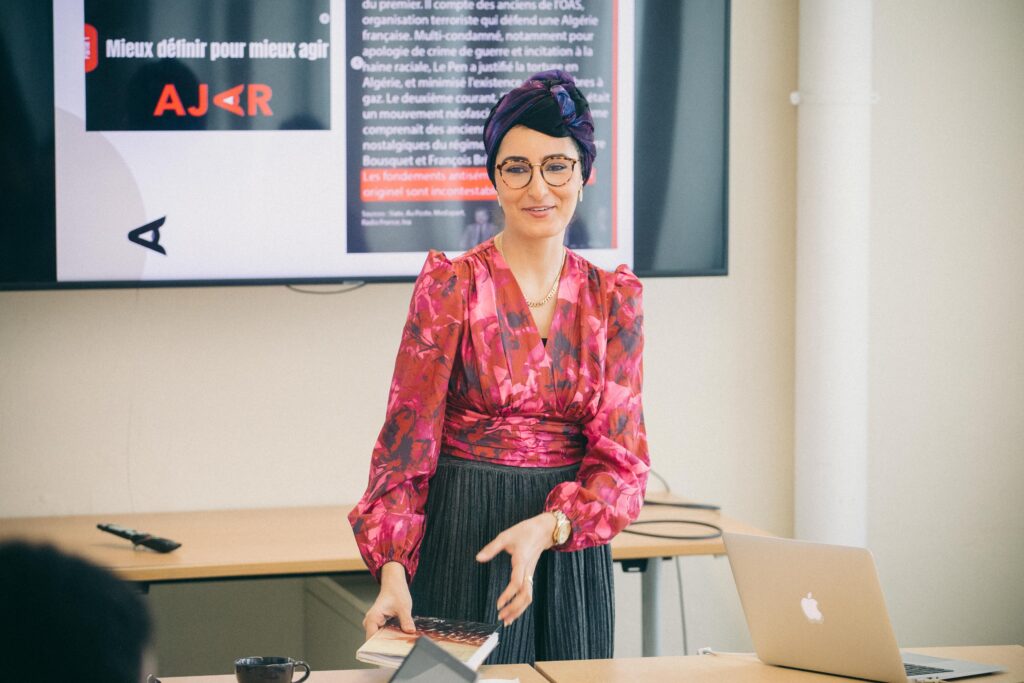
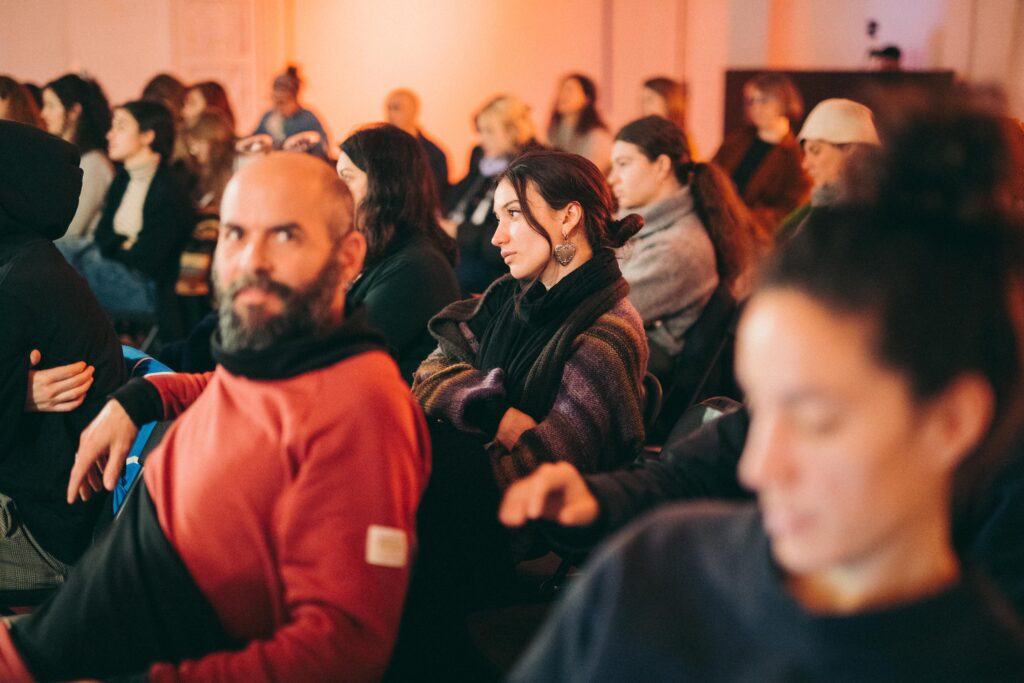
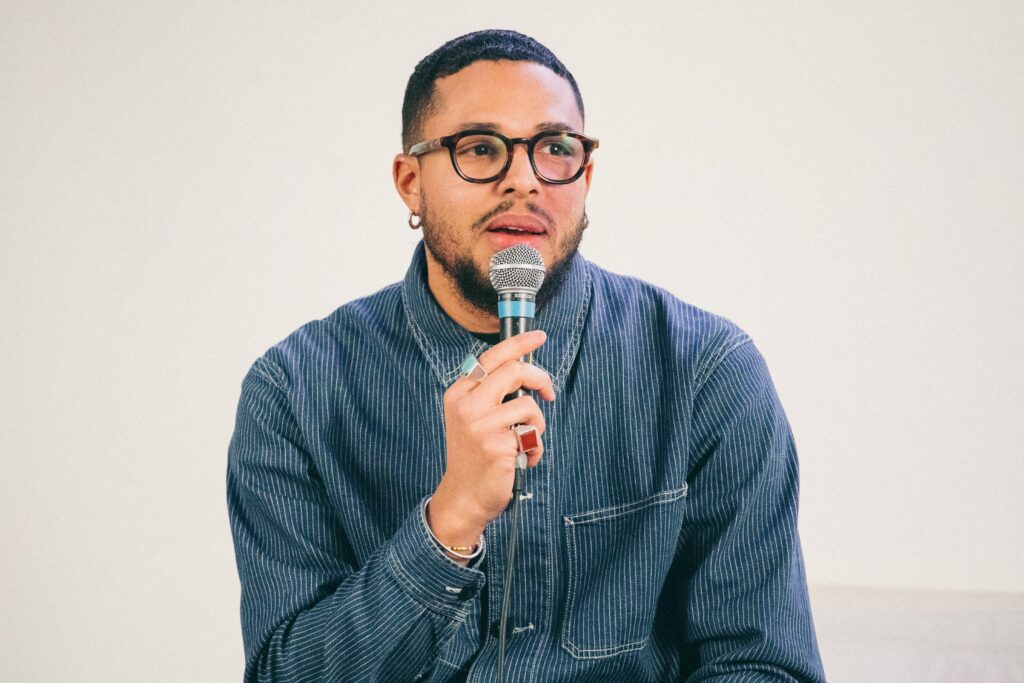
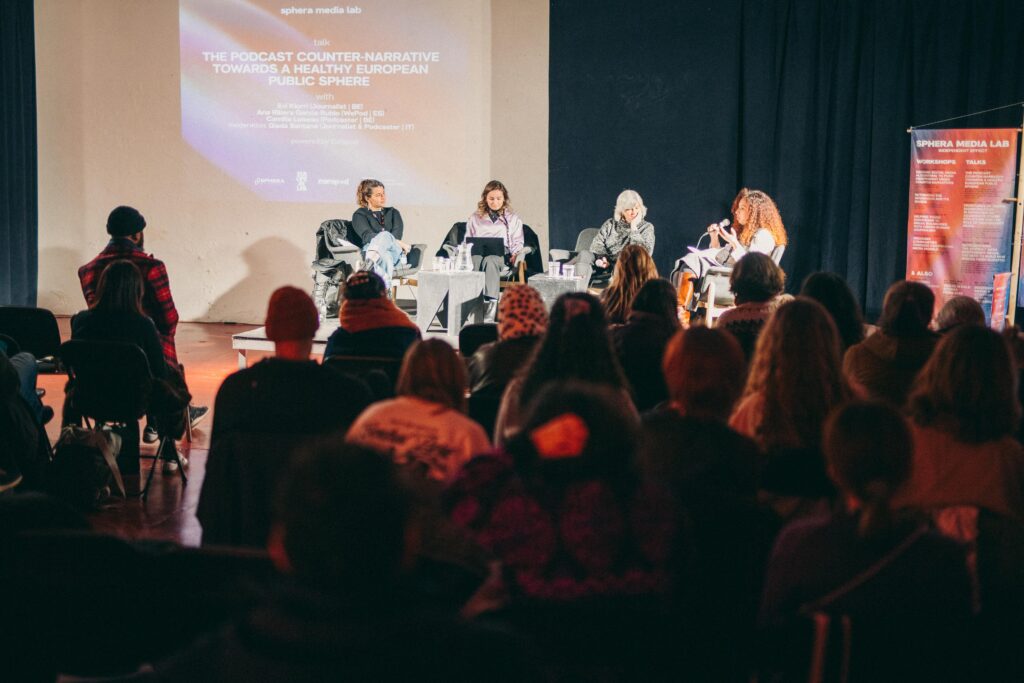
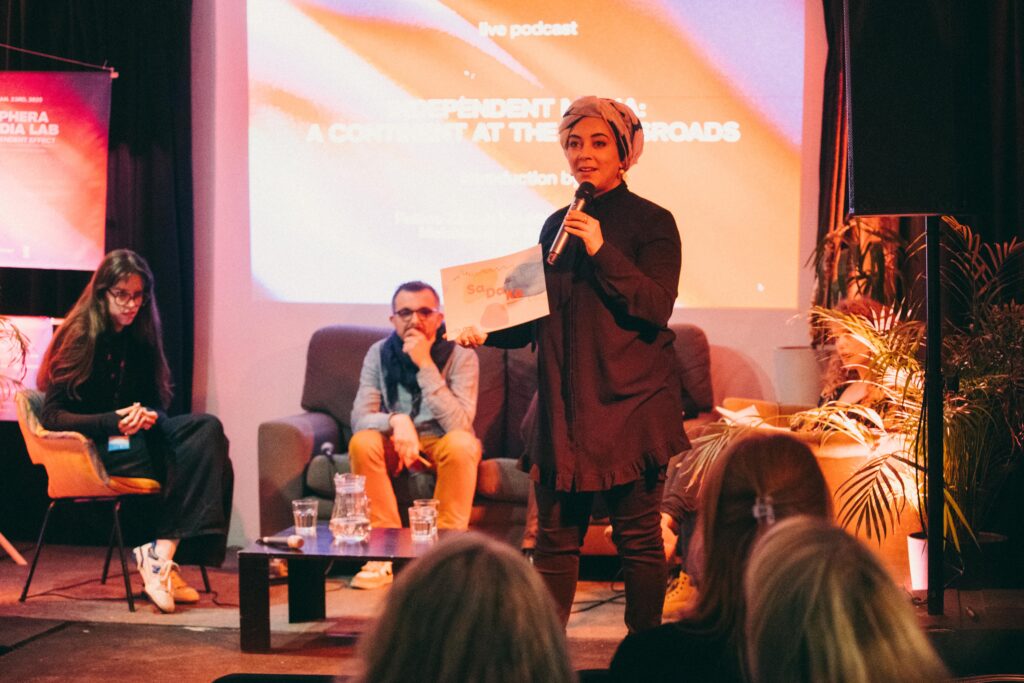
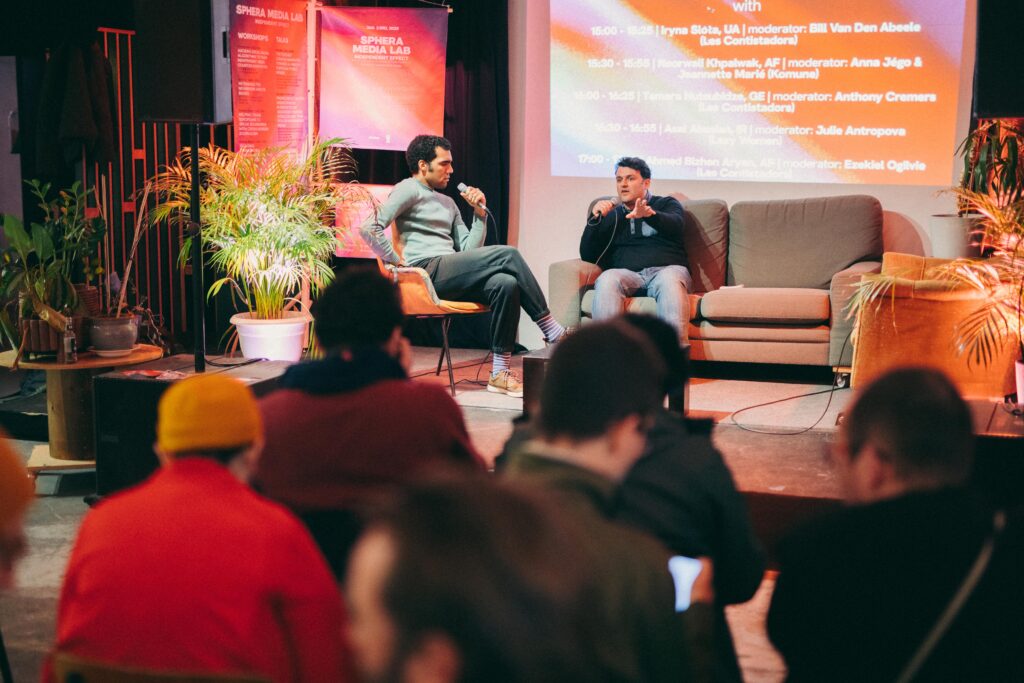


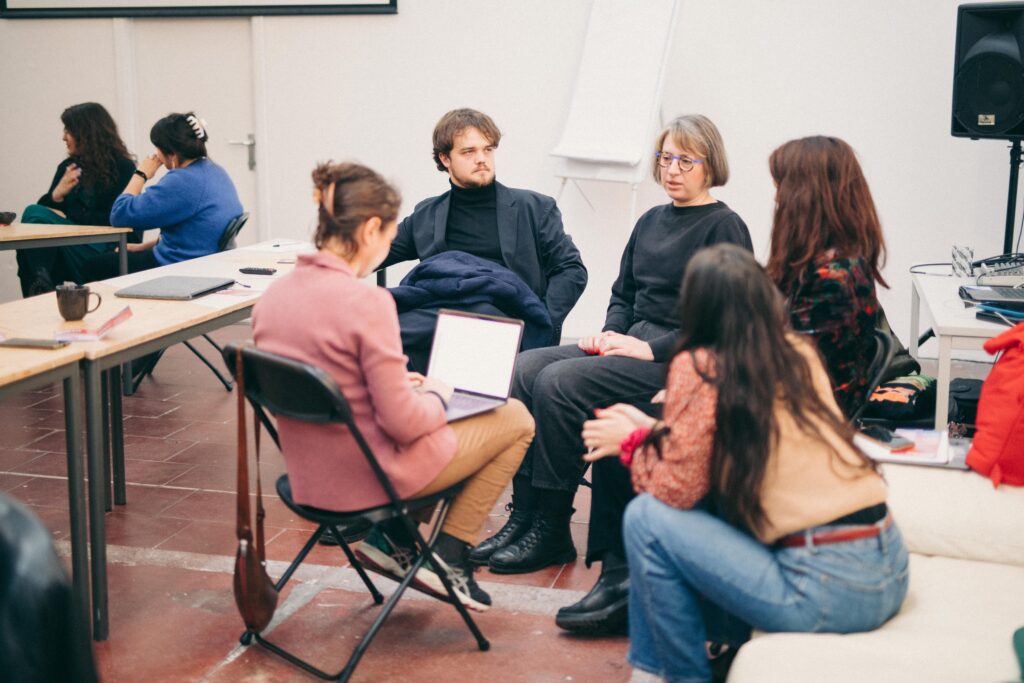
-
Thursday 23 January
10:30 – 12:30
Workshop · Hacking Social Media Algorithms to Push Independent Media Counter-Narratives
In our hyper-connected society, almost everything is done via social media platforms, which have become more than just a way to keep in touch with friends or acquaintances, but also environments for creating content, meeting and building communities, and sharing information. Their global nature, which implies a high degree of connectivity, allows information to circulate around the world in a matter of seconds, increasing the impact of the creator. When that creator is a media outlet, there is a real interest in this dissemination power. However, social media platforms are built on algorithms that don’t always make sense and can sometimes shadow some information. With these platforms owned by billionaires with political and economic interests—more or less clear, like Elon Musk’s—how can independent media trust these platforms with their qualitative information? But also, how can you exist outside these algorithms? These are complex questions that the Belgian association petites singularités, which works and thinks about digital practices and their alternatives, is exploring.
Host:
Ada LaNerd (petites singularités | BE)
10:30 – 12:30
Workshop • Rethinking the Newsroom and Its Biases
Racism is a system. This means that our social system is organised and structured around a white norm and gaze. Anyone who is seen to be outside this norm is then systematically discriminated against, pushed away, and marginalised. In the media, this means that most newsrooms are predominantly—if not exclusively—white. This is even more true as you move up the scale of responsibility. In Europe, BIPoC journalists are reporting in a racist environment. Many of them have been speaking out for years without any real change and awareness in newsrooms. In the last year, however, a collective approach has emerged in Europe, notably with the creation of ADIM in Belgium (Association for Diversity and Inclusion in the Media) and AJAR in France (Association of Antiracist and BIPoC Journalists), which actively tries to break the isolation of these journalists and to give voice to this media criticism. More recently, the French media Mediapart has appointed journalist Sabrina Kassa as its editorial manager for racial issues to monitor any racist bias in its content and journalistic practices and to develop its coverage of these issues. Will this inspire other newsrooms to take action?
Hosts:
Khedidja Zerouali (AJAR / Mediapart | FR)
Salwa Boujour (ADIM | BE)
10:30 – 12:30
Workshop • Helping Young Europeans to Break Boundaries with Cross-Border Journalism
There is somehow a paradox in our continent. Europeans’ lives are more and more intertwined with each other and young Europeans do share more and more similar opinions and views on the future of our continent. From social justice, the climate emergency and the erosion of democratic norms, young Europeans do believe that those stories do not know borders. Yet, most media outlets are lagging behind on producing unique crossborder stories and perspectives. That’s why, we are therefore proposing to explore how new innovative cross-border media collaborations are proving that European news are no longer no that foreign.
Powered by Médianes
Hosts:
Indrė Kiršaitė (Nara | LT)
Hannah Peters (ENTR | DE)
Alexandra Tyan (Sphera Network | IT)
10:30 – 12:30
Workshop • Engaging Communities Through Cooperative Media Models
Over the past few years, several media in Europe chose the cooperative model to manage their projects. Collective decision-making, horizontal organisation, participatory management: this model reflects a desire to democratise practices within the European media landscape. But what is the reality behind it? How do cooperatives really work, and what added value can media structures find in adopting such legal structure? To answer these questions, two European cooperatives share their experiences with this model: the Belgian quarterly investigative magazine Médor and the self-managed Spanish media outlet El Salto.
With:
Elvire Berahya-Lazarus (Coop-médias | FR)
Aníbal Hernández (El Salto | ES)
Louis Van Ginneken (Médor | BE)
Powered by El Salto
14:30 – 15:30
Talk • The Podcast Counter-Narrative: Towards a Healthy European Public Sphere
The last presidential campaign in the United States highlighted this dynamic: the world of podcasts became a battleground for influence. Donald Trump, for instance, appeared on nine different podcasts in October alone. Joe Rogan, Tucker Carlson, Theo Von, Andrew Schulz, Lex Fridman… These are just a few of the dozens of individuals who have launched their own podcast platforms, positioning themselves as alternative or ‘anti-media’ outlets, always eager to attack progressive values and ideas. In Europe, how has this ecosystem evolved? From Europod to PRISA Media, along with numerous independent studios, the podcasting sector appears to serve as a platform for causes such as feminism, digital ethics, anti-racism, and environmentalism—positions diametrically opposed to those promoted by the podcasts that contributed to the U.S. president’s victory. This raises questions about their impact and their ability to shape a European public sphere that defends the common good rather than undermining its principles.
With:
Evi Kiorri (Journalist | NL)
Camille Loiseau (Podcaster | BE)
Ana Ribera Garcia-Rubio (WePod | ES)
Moderation: Giada Santana Eusebio (Journalist & podcaster | IT)
Powered by Europod
15:00 – 18:00
Screenings • Sphera Documentaries in Conversations
15:00 – 15:45 | VD News with LOTTA: How a Reportage Brought French and Italian Climate Activists Together
LOTTA is an Italian climate activist who met Mathilde Caillard through a VD News documentary filmed in Paris. In the video we will present, LOTTA shares the origin of this story and how, through a viral content, it is possible to create human connections that have a real impact in their life. During LOTTA’s interview, we see clips from the Paris documentary featuring Mathilde.
With:
LOTTA (Climate artivist | IT)
Samuele Maccolini (VD News | IT)
16:00 – 16:45 | Popaganda with Transistence
Transistence, a crossborder documentary about trans people in Greece and Spain.
On 10 July 2023, Ana, a trans woman, a Cuban immigrant from Cuba, is brutally murdered in her home in the centre of Athens. Another transphobic hate crime in a country that recognizes and provides few rights to trans people. In the same year, Spain passes the most progressive framework of transgender rights laws in Europe. How does the law affect the lives of members of this community? From Spain’s first trans woman councillor Carla Antonelli to the Secretary General for Equality Ángela Rodríguez Martínez, individuals fighting for trans rights tell their reality in two-tier societies. “We just want to live”, says Darko in Madrid, while Anna Kouroupou from Athens, states explicitly: “We have a war”. Popaganda journalists Anastasia Vaitsopoulou and Ioannis Tsioulis start in Athens and travel to Madrid to investigate trans experiences.
With:
Ioannis Tsioulis (Popaganda | GR)
17:00 – 17:45 | StreetPress with KOP
Looking for Neo-Nazi Supporters in Poland (On part à la recherche des supporters néonazis en Pologne).
StreetPress went to Poland in search of neo-Nazi supporters. In Wrocław, the country’s third largest city, the ultras of the local club are closely linked to nationalist groups. Celtic crosses, references to Hitler: StreetPress has met them at the heart of a march through the city. This video is part of ‘KOP’, a StreetPress documentary series in which journalist Thomas Porlon investigates groups of football club supporters in five European countries. From Lyon to Athens in Greece, via Poland, Hungary and Italy, the five episodes in the series show how football and politics are intertwined across the continent, particularly on the far right.
With:
Thomas Porlon (StreetPress | FR)
15:00 – 18:00
Radio Corner • Voices in Exile: Stories from Afar
Let’s turn the microphone around, giving journalists in exile the chance to share their stories. For once, they step out of their usual roles as interviewers to become the ones being interviewed. Through dynamic conversations, this radio set delves into their personal journeys of resistance and adaptation, uncovering the human side of exile. Beyond their individual experiences, the light is shed on the independent media landscapes they left behind—exploring the challenges, successes, and various perspectives of their work under pressure.
In partnership with Voix en Exil, Les Contistadors & Hôtel71
15:45 – 16:45
Talk • Frontlines of Truth: Disinformation in Reporting on Aggressive Power Structure and the Role of Independent Media
In times of information warfare, reporting in contexts of adversity—whether in Hungary, Palestine, or Ukraine—demands more than journalistic rigour; it requires resilience against a tide of disinformation designed to cover up the truth and manipulate public opinion. This panel will delve into the challenges journalists face when exposing abuses of power, the tactics used by aggressive regimes to distort narratives, and the vital role of independent media in defending democracy and human rights. Journalists and researchers will share firsthand experiences from conflict zones and contested spaces. As independent players, they navigate censorship, propaganda, and threats to uphold their commitment to truth—while resisting the erosion of facts in the face of authoritarianism.
Powered by 444
With:
Szilvi Német (Lakmusz.hu, | HU)
Meera Selva (Internews Europe | UK)
Terrell Jermaine Starr (Black Diplomats | US)
Moderation: Yago Álvarez (El Salto | ES)
17:00 – 18:00
Talk • Democratising the Internet with Independent Media: The Need to Build New Spaces from Scratch
Today’s digital landscape often feels dominated by gatekeepers—tech giants, algorithms, and monetised platforms that prioritise profits over people and verified information. This panel explores how these challenges are reshaping the way we consume and create information online. The need to understand the tech issues confronting media organisations—censorship, data centralisation, diminishing reach, and algorithmic bias—and ask how independent media can pioneer alternative spaces is pressing. What does it take to build a truly open and equitable digital ecosystem from scratch? How can technology, collaboration, and creativity empower media to thrive outside traditional platforms? It is about reclaiming the internet’s potential and charting a path forward for independent voices to work towards democratising the informative digital space.
Powered by Krytyka Polyticzna and VD News
With:
Agustin Ferrari Braun (University of Amsterdam | NL)
Paulina Januszewska (Krytyka Polyticzna | PL)
Samuele Maccolini (VD News | IT)
Moderation: Heritiana Ranaivoson (Vrije Universiteit Brussel | BE)
18:15 – 19:15
Talk • Independent Media: A Continent at the Crossroads
Wherever far-right regimes come to power in Europe, their primary target is the media independence. This is evident in Slovakia, where a public audiovisual law threatens to turn public radio and television, RTVS, into a tool for “propaganda.” In Hungary, approximately 500 national and local media outlets have been consolidated into a foundation aimed at “promoting Hungarian national consciousness,” under the aegis of Viktor Orbán. In Italy, the government no longer hides its interference in controlling public media’s directions. Week by week, such examples are multiplying, from the West to the East of the continent. This situation highlights the chronic fragility of independent and public service media ecosystems. While the European Union is legislating on these issues, as seen with the adoption of the Media Freedom Act, is it already too late? How are independent media impacted by these regimes coming to power? And how are they fighting against these trends? And what roles can European networks like Sphera or Reset! play in response to these dynamics?
Powered by StreetPress
This discussion is part of the Reset! Live Podcast series.
With:
Daphné Deschamps (StreetPress | FR)
Ricardo Gutiérrez (European Federation of Journalists | BE)
Oláh Kata (444 | HU)
Moderation : Quentin Ariès (Médianes | FR)
19:30 – 22:00
Networking & Dj Set
With: Coline Cornélis (Artist | BE)